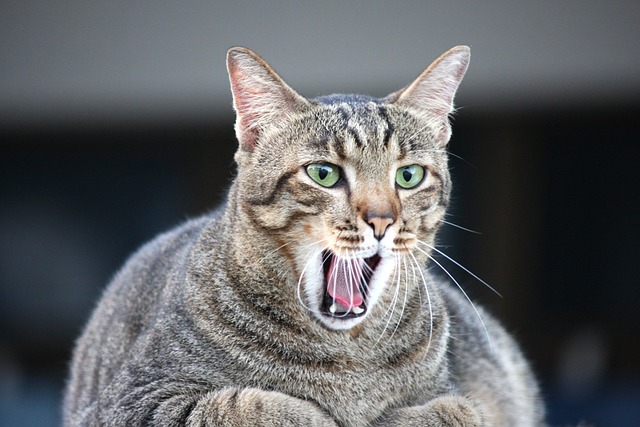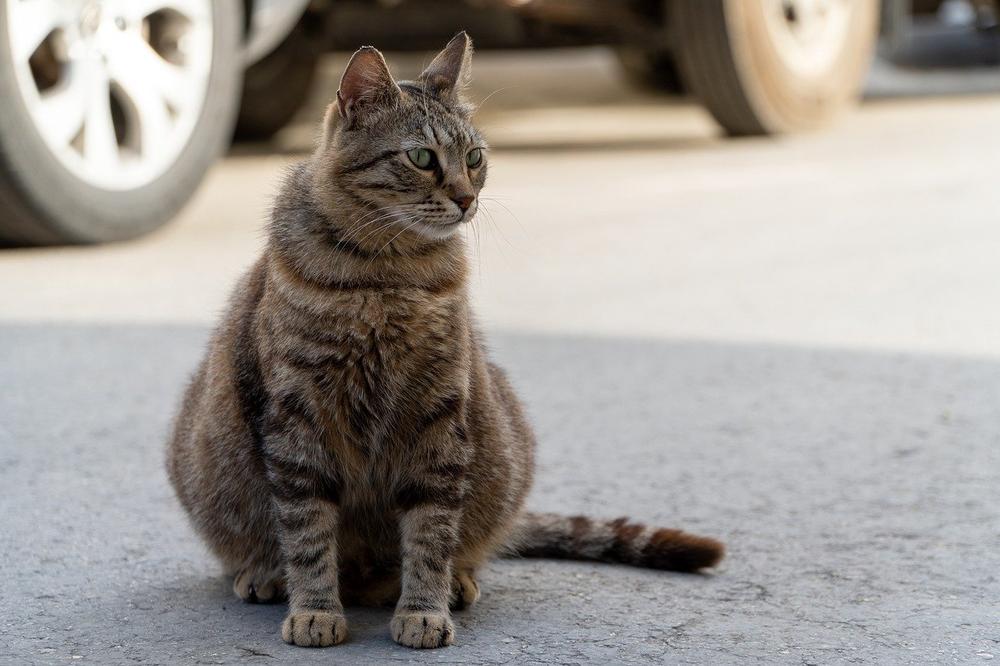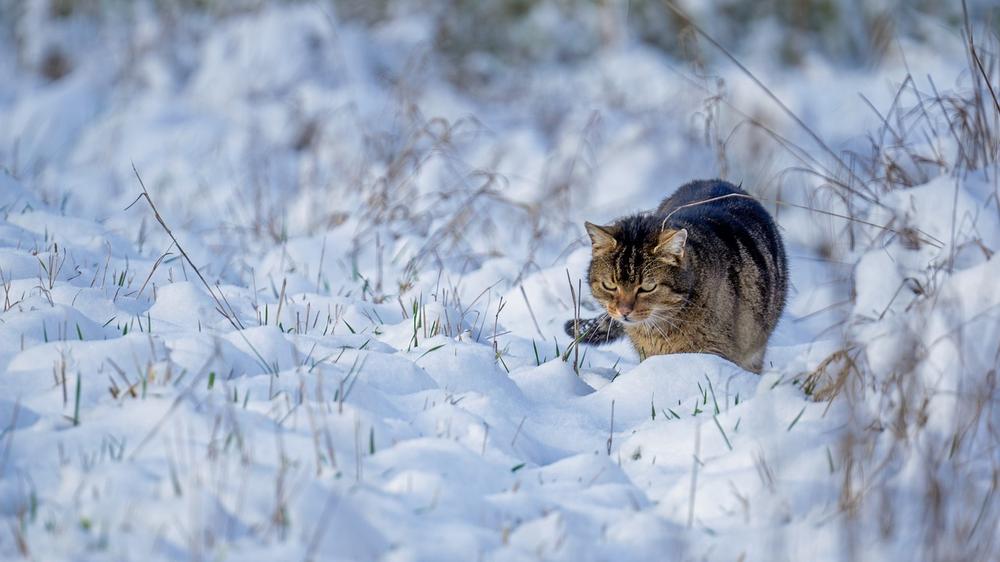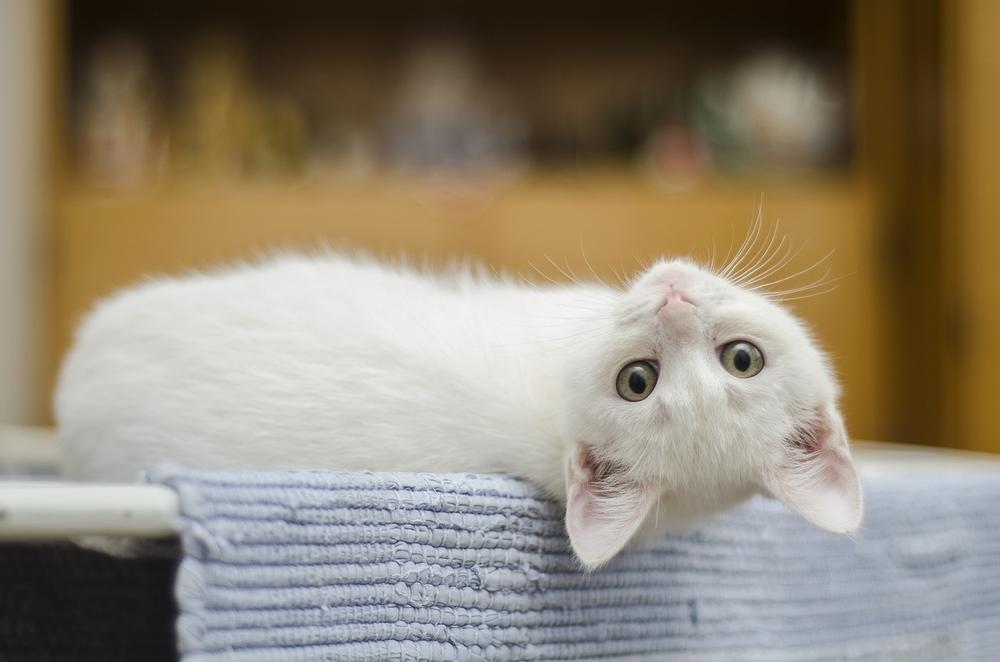Pregnant Cat Keeps Meowing: Everything You Need to Know

Is your pregnant cat driving you crazy with non-stop meowing?
Are you losing sleep and worrying about her health?
I understand.
It's like a never-ending horror movie, where the screeching never stops. 💤
Your heart races, your anxiety skyrockets, and you start imagining the worst.
But hey, take a deep breath.
Let's unravel this mystery together.
Because trust me, there's an explanation behind all that meowing.
And I'm here to help you find it.
So sit tight, and let's begin.
Pregnant Cat Meowing Like in Heat
When your cat is pregnant and starts meowing like she's in heat, it can be confusing for you.
But don't worry, I've got you covered... Here's what you need to know:
- Hormonal changes during pregnancy can affect how much your cat meows.
- Pregnant cats often meow a lot, and it can impact their mood.
- It's important to respond to your cat with support and reassurance during this time.
- Remember, each cat has its own unique personality which can influence its meowing habits.
- Increased meowing might be your cat's way of seeking attention or expressing discomfort.
- Sometimes, meowing can happen when your cat experiences false labor contractions.
- As the pregnancy progresses, cats tend to meow more and louder due to changes in their body.
- Before jumping to any conclusions, make sure you understand these reasons.
- In the later stages of pregnancy, cats are often very vocal.
- Their meowing is a way for them to seek attention and cope with their discomfort. 🐈
Understanding what your cat needs and providing support is crucial during this time.
Pregnant Cat Meowing at Night
If your pregnant cat won't stop meowing at night, here's how you can help:
- Set the mood: Make it cozy and quiet for her at night - dim the lights and keep things calm so she can relax.
- Keep an eye on her health: This excessive meowing could be a sign of an underlying health issue, like a hyperactive thyroid or kidney disease. If you're worried, talk to your vet.
- Stick to a routine: Cats thrive on routine, so try to stick to regular feeding and playtime schedules. It'll help them feel secure and minimize their anxious meowing.
- Give her some mental stimulation: Keep her mind occupied during the day with toys and interactive play sessions. It'll tire her out, so she'll be less restless at night.
- Be patient: Remember, pregnant cats are dealing with hormonal changes and natural instincts. Just give her time and understanding during this period.
Follow these tips, and you'll create a more peaceful nighttime situation for you and your soon-to-be-momma cat.
But here's the most intriguing part...

Meowing isn't just limited to before and during birth.
Pregnant cats may continue to exhibit excessive vocalization even after giving birth.
So, let's delve deeper into the reasons behind a postpartum cat's meowing behavior and explore ways to address it...
Understanding a Pregnant Cat's Meowing Behavior During Birth
Understanding a pregnant cat's meowing behavior during birth can be quite fascinating.
There are several reasons why pregnant cats meow during this time:
- Seeking a secure location: Pregnant cats meow to communicate their need for a safe and comfortable place to give birth. They may wander around, meowing loudly as they search for the perfect spot.
- Experiencing discomfort: Labor can be uncomfortable for pregnant cats, leading to meowing as a way to express their discomfort. These meows may sound different from their usual meowing.
- Seeking attention and reassurance: Some pregnant cats meow because they want attention or reassurance from their owners. They may feel anxious about the upcoming birth and want their human companion close by.
You have to note that while meowing is common during labor, excessive meowing could signal pain or other medical issues.
If you notice your pregnant cat meowing excessively or showing signs of distress, it is advisable to consult with a veterinarian to ensure her well-being. 😺

Pregnant cats are typically equipped to handle the birthing process on their own. However, if you have any concerns or questions, it's best to seek professional guidance.
I highly recommend checking out my article Cat Meowing Purring After Giving Birth.
Decoding Feline Pregnancy: Signs to Identify if Your Cat is Expecting
Increased affection and grooming are behavioral changes to watch out for as possible signs of feline pregnancy.
But meowing alone does not guarantee that your cat is pregnant.
For more accurate clues, pay attention to weight gain, a bigger appetite, and the production of milk.
Look closely at your cat's nipples too - if they appear larger or darker, it could be a sign.
Restlessness and an intensified need for grooming might also suggest that your cat is expecting.
So, keep an eye on these indications to determine whether your feline friend will soon welcome new additions to the family.
Stages of Pregnancy for Cats

Here's the breakdown of what happens when a cat gets pregnant:
- So, there are three stages to feline pregnancy - fertilization, development, and labor.
- Kittens can start having kittens at around 6-8 months old.
- When it's their first time, cat moms usually give birth to two or three kittens.
- Persians have less in a litter, while Siamese cats tend to have more.
- It's possible for cats to have 1-2 litters each year.
- The number of kittens in a litter can vary, but the average is usually 4-6.
- If you want to know how many kittens to expect and avoid any problems during birth, talk to a vet.
- Generally, a cat's pregnancy lasts about 63-65 days.
- During pregnancy, cats might meow a lot, but that tends to go away after they've given birth.
- Breed, age, and overall health can affect how many kittens a cat has, but most fall within the range of 4-6.
So, on average, a cat's pregnancy lasts between 65-69 days. 🐱
How to Care for a Pregnant Cat
Here are some tips to help you take care of your pregnant cat:
- Watch her behavior: Pregnant cats might act differently, like being more affectionate or wanting extra attention. These changes happen because of hormonal shifts and them relying on you more during pregnancy.
- Create a calm setting: Make sure your pregnant cat has a peaceful space with comfy bedding where she can rest. This will help her feel less restless and more relaxed.
- Feed her well: Pregnant cats need lots of nutrients, so give them regular meals that include high-protein kitten food. Also, make sure they always have fresh water to stay hydrated.
- Don't skip vet visits: It's important to bring your pregnant cat to the vet regularly to check her health. Your vet can advise you on vaccines, deworming, and any other concerns that may come up during pregnancy.
- Pay attention to breathing: Heavy breathing and panting can be normal during pregnancy, but it doesn't necessarily mean she's in pain. However, if you notice excessive panting or distress, consult your vet for further evaluation.
- Ask about supplements: If you're considering giving your pregnant cat nutritional supplements, talk to your vet first. They can recommend safe options that meet her specific needs.
️ Providing your pregnant cat with affection, tolerance, and comprehension will guarantee her well-being and contentment throughout this unique period.
And now, let me guide you on how to care for your pregnant cat and her soon-to-arrive kittens...
What to Do After Your Cat Gives Birth
When your cat has her babies, you gotta make sure both she and the kittens stay healthy. Here's what you should do:
- Keep an eye on the mama cat and her babies so you can catch any health problems early.
- Don't rush the birthing process - sometimes there are breaks between each kitten being born.
- Set up a safe and cozy area for them with blankets or towels where the cat feels secure.
- Make a comfy bed on the floor that satisfies her natural nesting instincts.
- Help her find a warm and quiet spot to give birth in.
- Spend some quality time with her through gentle play and petting.
- Pay attention to her meowing - it's how she talks to you and lets you know what she needs.
- Let pregnant cats come inside or find a safe outdoors spot to have their babies.
- Make sure the mama cat is comfortable and safe throughout the whole nesting period.
- If anything seems off or you're worried about the mother cat or her kittens, get in touch with a vet.
Ensuring a smooth and healthy journey for your cat and her new offspring can be achieved by following this process.
Understanding a Pregnant Cat's Meowing Behavior Overall
Key Takeaways:
- Hormonal changes during pregnancy can make a cat more vocal.
- Meowing patterns can resemble those of a female cat in heat.
- Increased vocalization can be a way for a pregnant cat to seek attention or communicate discomfort.
- Pregnant cats meow more frequently and loudly as pregnancy progresses.
- Excessive meowing at night could be a sign of an underlying health issue.
- Understanding a pregnant cat's meowing behavior during birth involves recognizing various reasons such as discomfort, seeking attention, and nest preparation.
- Signs of labor in pregnant cats include meowing, pacing, licking the genital area and abdomen, restlessness, contractions, clear discharge, and increased vocalization.
- Excessive meowing may indicate pain or discomfort and veterinary consultation is recommended.
- Look for signs of pregnancy such as weight gain, increased appetite, milk production, behavior changes, and enlarged or darkened nipples.
- Young cats during their first pregnancy may experience anxiety.
- The average litter size is 4-6 kittens, with factors such as breed, age, and health affecting the number.
- Taking care of a pregnant cat involves understanding their behavior and emotional changes, providing a calm environment, regular meals, and veterinary check-ups.
- Patience is required during the birthing process as there may be time gaps between each kitten's birth.
- Fulfill your cat's nesting instincts by providing appropriate materials and a secluded area.
- Meowing may indicate a desire to come inside or find a safe place to give birth.
And that wraps up today's article.
If you wish to read more of my useful articles, I recommend you check out some of these: Stray Cat Meowing Loudly at Night, Cat Not Using Litter Box After Giving Birth, Why Does My Cat Purr When He Sees Me, Why Does My Cat Want Me to Watch Her Eat, and Cat Growling After Giving Birth
Talk soon,
-Sarah Davis